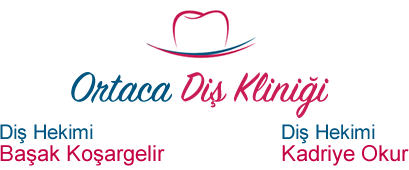 What is Buteyko Breathing Method?
Russian The Buteyko method, developed by Konstantin Buteyko, includes a series of breathing exercises to correct excess respiration (hyperventilation). When the breathing volume drops to the normal level, there are obvious improvements in breathing-related diseases and many additional benefits such as weight loss, increased energy levels, and better sleep are emerging.
The Buteyko Method includes the following steps:
- Nasal Exercises
- Transition from nasal respiration to nasal respiration
- Breathing volume to normal values
- Loosen the diaphragm until you feel air starvation (feeling that the breath is not enough)
- Start the healing process by making minor changes in life style to support them
- A special breath hold test to detect the volume of breath and follow the progress in the studies (CP-Control Pause)
Thousands of people in the Western world have successfully implemented the Buteyko Method for the following diseases:
- Asthma
- Attention deficit and hyperactivity
- rhinitis
- Allergic rhinitis (hay fever)
- Depression
- short temper
- Anxiety
- Stress
- Tooth and mouth problems
- Sleep disorders
- Snore
- Sleep apnea
What is Buteyko Breathing Method?
Russian The Buteyko method, developed by Konstantin Buteyko, includes a series of breathing exercises to correct excess respiration (hyperventilation). When the breathing volume drops to the normal level, there are obvious improvements in breathing-related diseases and many additional benefits such as weight loss, increased energy levels, and better sleep are emerging.
The Buteyko Method includes the following steps:
Nasal Exercises
Transition from nasal respiration to nasal respiration
Breathing volume to normal values
Loosen the diaphragm until you feel air starvation (feeling that the breath is not enough)
Start the healing process by making minor changes in life style to support them
A special breath hold test to detect the volume of breath and follow the progress in the studies (CP-Control Pause)
Thousands of people in the Western world have successfully implemented the Buteyko Method for the following diseases:
Asthma
Attention deficit and hyperactivity
rhinitis
Allergic rhinitis (hay fever)
Depression
short temper
Anxiety
Stress
Tooth and mouth problems
Sleep disorders
Snore
Sleep apnea
Excessive breathing (chronic hyperventilation) leads to numerous health problems, including asthma. Excessive respiration changes the proportion of natural gas levels in the blood. The habit of chronic breathing is a result of modern life. Processed foods, lack of exercise, air pollution, smoking, excessive talking, stress, time constraints, fear, anger, believing that high temperatures and great breathing in our homes are beneficial are contributing to our breathing.
Chronic over breathing leads us to breathe 2-3 times more air than normal values, resulting in many diseases such as obesity, drowsiness, chronic fatigue, depression, sleep disorders, concentration difficulties, asthma, and allergy.
Typical indications of excessive respiration are mouth-to-mouth breathing, breathing in and out of breath, chest movement, regular pulling, sniffing with great breaths, irregular breathing and snoring.
Excessive breathing habits reduce the amount of oxygen to cells and tissues, and cause narrowing of the smooth muscle in the blood vessels and airways. This causes serious problems in the long term on health.
L Chronic hyperventilation affects all organs and systems at varying degrees. Ent Dr.ClaudeLum
As a result of the deterioration of chronic hyperventilation, every organ and system will suffer as a result of the following problems:
Respiratory system: wheezing, nasal congestion, loss of smell and taste, runny nose, nasal discharge, shortness of breath, cough, chest tension, frequent lung infection, frequent yawning and snoring.
Nervous System: Lack of concentration, confusion, dizziness, drowsiness, sweating, vertigo, tingling in hands and feet, fainting, tremors and headache.
Heart: palpitations, pain in the chest, irregular heartbeat and misfire.
Mind: Anxiety, irritability, frustration, restlessness, irritability, tension, depression, learning disability and stress.
Other symptoms commonly seen: dryness in the mouth, chronic fatigue, difficulty in falling asleep, frequent urination at night, frequent urination at night, nightmares, getting tired in the morning, reduced productivity, dry and itchy skin, sweating in the palm, diarrhea, constipation, general fatigue and a feeling of chronic burnout.
Related Articles:
How do you breathe?
Reference: www.buteykoclinic.com
Buteyko for Snoring and Sleep Apnea
The aim of the termination of snoring program is to bring the respiratory volume to normal values and to strengthen the upper respiratory tract by giving a new and healthy respiratory habit. When breathing is calm and silent, snoring and sleep apnea are eliminated naturally without any side effects and without external intervention. The majority of people who normalize respiratory values by applying the Buteyko Method do not need CPAP (continuous positive air pressure supplying device), surgical interventions, or oral devices.
Our aim is to help you switch to a breathing model that will eliminate snoring and sleep apnea by providing a quiet, calm and deep sleep. When your sleep is healthy, your energy level, productivity and concentration during the day will increase.
When you watch the breath of a snoring person, you will notice that it is noisy and violent. Snoring is briefly more than a narrow area of air flow.
The normal breathing volume is 5-6 liters per minute, whereas in individuals with snoring and sleep apnea the volume is up to 15 liters per minute. |


